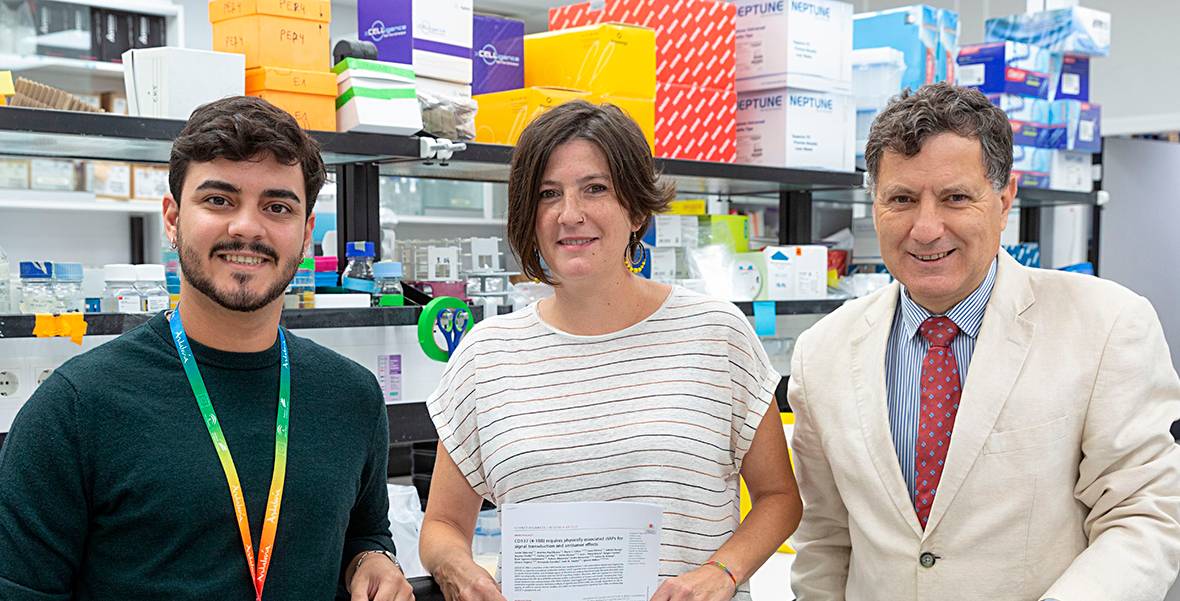A mechanism of the CD137 (4-1BB) receptor stimulates the immune response against tumors
Investigators at Cima University of Navarra establish that cIAPs proteins play a crucial role in the activation and function of lymphocytes through the stimulation of the CD137 receptor and promote their antitumor effect

September 11, 2023
Spanish researchers have identified a mechanism of the CD137 (4-1BB) receptor that stimulates the immune response to tumors. Investigators at Cima, part of the Cancer Center Clínica Universidad de Navarra, have revealed the role of CIAPs in signal transduction from the CD137 (4-1BB) receptor. This is relevant because many cancer immunotherapy agents under development are based on the stimulation of this receptor.
In collaboration with scientists at the Alberto Sols Biomedical Research Institute and the National Centre for Biotechnology (CNB-CSIC) in Madrid, the proteins that interact with CD137 (4-1BB) inside the cell were identified using ultrasensitive proteomics. Among them, cIAP1 and cIAP2 were postulated to play a critical role in the stimulation of T lymphocytes acting via signalling from the CD137 receptor. Importantly, cIAPs were crucial for the antitumor effects of agonist anti CD137 antibodies as those under phase I/II clinical trials as well as for the function of CAR T cells that contain the intracellular signalling module of CD137.
Ignacio Melero, co-director of the Immunology and Immunotherapy Program at the Cima University of Navarra, who has led this research effort, explains that “this piece of knowledge is important to understand how a pathway that results in efficacious cancer immunotherapy works. Importantly, more than a dozen agents stimulating this pathway are in or approaching clinical trials with promising results as we have recently reviewed in the journal Cancer Discovery.”
The experimental study has been published recently in Science Advances.
Advances in proteomics
Javier González Vaz, who is the first autor in the paper highlights that “the mechanisms that have been discovered advance our ability to manipulate the pathway and intensify the antitumor effects, as we are now trying in ensuing research efforts. The results will help to clarify and improve the therapeutic effect of the CARs approved for clinical use.”